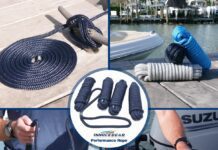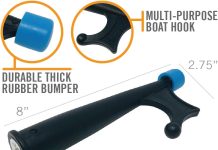Ahoy there! Ever pondered upon the question of whether owning a boat automatically grants you the title of “captain”? Well, we’re here to dive into the depths of this maritime debate and shed some light on the matter. So strap on your sailor hats and join us as we explore the fascinating world where boat ownership meets the call of the sea!
Definition of a Captain
The role of a captain
A captain is a person who holds the highest authority and responsibility for the operation and safety of a boat or vessel. They are entrusted with the overall command and decision-making on board, ensuring the well-being of the crew and passengers. The captain assumes the role of leader, taking charge of navigation, managing emergencies, and maintaining order on the boat.
Responsibilities of a captain
The responsibilities of a captain span a wide range of areas. Primarily, they are responsible for the safety of everyone on board, ensuring compliance with safety regulations, and maintaining proper equipment and emergency procedures. A captain also manages the navigation of the boat, including route planning, charting, and piloting. Additionally, they oversee the maintenance and upkeep, as well as the overall operation of the vessel.
Qualifications of a captain
To become a captain, certain qualifications are usually required. These qualifications may vary depending on the country and the size of the boat. Captains typically need to possess a boating license or certification, demonstrating their knowledge of boating regulations, navigation skills, and emergency procedures. Additionally, experience and practical training are valuable qualifications, providing captains with the necessary expertise to handle various situations that may arise at sea.
Ownership of a Boat
Legal ownership of a boat
Legal ownership of a boat refers to the recognition of an individual or entity as the rightful owner, granting them certain rights and responsibilities. Ownership is typically determined by documentation such as a title or registration. It is essential to establish legal ownership to protect one’s investment, establish liability, and ensure compliance with relevant laws and regulations.
Financial implications of boat ownership
Boat ownership entails various financial implications. Initial purchase costs, including the price of the boat, equipment, and any necessary upgrades, can be substantial. Ongoing expenses include regular maintenance, fuel, insurance, mooring or docking fees, and storage costs. It is crucial for potential boat owners to carefully consider these financial responsibilities to ensure they can comfortably afford the investment.
Types of boat ownership
There are different types of boat ownership, each with its advantages and considerations. Sole ownership is when a single individual owns the boat outright, with complete control and responsibility. Shared ownership involves multiple individuals or entities jointly owning the boat, sharing the costs and enjoying predetermined usage rights. Charter ownership allows owners to profit by renting out their boat to others when not in use. Each type of ownership has unique legal, financial, and managerial aspects that must be considered.
This image is property of www.franksonnenbergonline.com.
Titles and Roles on a Boat
Different titles on a boat
On a boat, various titles are given to people depending on their roles and responsibilities. The captain is the person in charge of the vessel and holds the highest authority. There may also be first mates, deckhands, engineers, and other crew members who assist in the safe operation of the boat. Passengers on board do not hold specific titles but are under the captain’s care and should follow their instructions for safety and security.
Roles and responsibilities on a boat
Each title on a boat carries specific roles and responsibilities. The captain is responsible for navigation, safety, and overall management of the vessel. The first mate assists the captain and may take charge in their absence. Deckhands perform various duties related to the deck, including mooring, maintenance, and handling of equipment. Engineers manage the boat’s mechanical and electrical systems, ensuring they are in good working order. It is crucial for each individual to understand and fulfill their designated roles to ensure a smooth sailing experience.
Distinction between captain and owner
The distinction between a captain and an owner lies in their roles and responsibilities. While the captain has the authority and responsibility for the operation and safety of the boat, the owner holds legal ownership and financial responsibility for the vessel. In some cases, the captain and owner may be the same person, but it is essential to recognize the separation of duties and understand that ownership alone does not automatically make one a qualified captain.
Captaincy and Boat Ownership
Captaincy as a legal requirement
Captaincy is not always a legal requirement for boat ownership, especially for small recreational boats. However, some jurisdictions may have specific regulations that require a licensed captain to operate certain types or sizes of vessels. It is essential to familiarize oneself with the legal requirements of the jurisdiction where the boat will be operated to ensure compliance.
Captaincy as a skillset
Captaincy is a skillset that goes beyond legal requirements. It encompasses a wide range of knowledge and abilities, including navigation, safety protocols, emergency management, and leadership. A skilled captain understands the principles of seamanship, can interpret weather conditions, and has excellent communication and decision-making skills. While legal obligations may not always mandate it, acquiring the necessary skills is vital to ensure the safety and well-being of everyone on board.
Captaincy based on boat size
The need for a qualified captain often depends on the size and type of the boat. For smaller recreational boats, a captain’s license may not be mandatory. However, as the size and complexity of the vessel increase, the expertise and training required become more critical. Larger boats, commercial vessels, and those operating in more challenging conditions or carrying more passengers often necessitate a licensed captain to ensure the safe and effective operation of the boat.
This image is property of cdn-images-1.medium.com.
Legal Requirements for Captains
Boating licenses and certifications
Obtaining a boating license or certification is a common legal requirement for captains. These licenses validate the captain’s knowledge of boating rules and regulations, navigation skills, and emergency procedures. The specific requirements for licensing vary by jurisdiction, but often involve passing a written exam and demonstrating practical boating skills. These licenses need to be renewed periodically, ensuring that captains stay updated with the latest regulations and best practices.
Safety regulations and compliance
Captains are responsible for ensuring compliance with safety regulations specific to their jurisdiction. This includes carrying mandatory safety equipment such as life jackets, fire extinguishers, and distress signals. Captains must also conduct regular safety inspections, maintain proper navigational lights, and adhere to established operational limits. Non-compliance can result in fines, penalties, or restrictions on boat operation.
Insurance requirements
Boat owners are often required to hold adequate insurance coverage to protect against potential liabilities. This may include third-party liability coverage for damages caused by the boat, as well as coverage for the boat itself. Insurance requirements can vary depending on the type and size of the boat, the intended usage, and the jurisdiction. It is essential for captains to familiarize themselves with the insurance requirements applicable to their specific situation.
Safety and Responsibility
Safety considerations for boat owners
Boat owners have a responsibility to prioritize safety for themselves, their crew, and their passengers. This includes maintaining the boat in good working condition, regularly inspecting safety equipment, and ensuring that everyone on board receives proper safety training. Boat owners should also stay informed about local weather conditions, navigational hazards, and emergency procedures to minimize risks and maintain a safe boating environment.
Captain’s responsibility towards crew and passengers
The captain bears the primary responsibility for the safety and well-being of the crew and passengers on board. This includes providing clear instructions, enforcing safety protocols, and being prepared for emergencies. The captain should ensure that everyone on board is aware of safety procedures, including proper use of life jackets, emergency exits, and communication methods. Regular safety drills and briefings can help reinforce these responsibilities and ensure everyone’s readiness in case of an emergency.
Navigational knowledge and experience
Navigational knowledge and experience are crucial for a captain’s ability to operate a boat safely. This includes understanding charts and navigational aids, interpreting weather conditions, and calculating routes to avoid hazards. Additionally, a captain should have a good understanding of local regulations, including speed limits, restricted areas, and navigational rules. Regular practice and experience on the water contribute to the development of strong navigational skills and the ability to make informed decisions in challenging situations.
This image is property of cdn1.matadornetwork.com.
Experience and Training
Importance of experience for captaincy
Experience plays a vital role in developing the necessary skills and confidence for captaincy. Spending time on the water in various weather conditions and navigational challenges allows captains to become familiar with handling their specific vessel. Experience also provides valuable insights into managing emergencies, troubleshooting mechanical issues, and making quick decisions. Aspiring captains should aim to accumulate as much experience as possible to enhance their competence and ensure the safety of those on board.
Training programs for aspiring captains
Numerous training programs are available for those aspiring to become captains. These programs cover a range of topics, including navigation, safety procedures, emergency management, and boat handling. Training may include classroom instruction, hands-on practical exercises, and simulated scenarios to prepare captains for real-world challenges. Completion of recognized training programs can help captains build their knowledge base and improve their skills, increasing their effectiveness in their role.
Continuing education for boat owners
Education should not stop once an individual becomes a captain or boat owner. Continuing education is essential to stay up to date with changing regulations, safety practices, and technological advancements. There are various resources available, including seminars, workshops, and online courses, where boat owners and captains can expand their knowledge and enhance their understanding of best practices. Continual learning ensures that captains can provide the highest level of safety and satisfy their responsibilities effectively.
Challenges Faced by Boat Owners
Maintenance and repair challenges
Boat owners often face the challenge of ongoing maintenance and repair. Regular inspections and maintenance tasks, such as hull cleaning, engine servicing, and electrical checks, are necessary to keep the boat in good working condition. Repairs may also be required due to wear and tear, equipment failure, or damage from accidents. Proper maintenance and timely repairs are crucial to ensure the boat’s longevity, performance, and safety.
Navigational difficulties and weather conditions
Navigational difficulties and adverse weather conditions can pose challenges to boat owners. This includes understanding tides, currents, and wind patterns, as well as planning routes to avoid hazardous areas. Weather changes can impact boating conditions, making it essential for boat owners to stay informed about weather forecasts and be prepared to alter plans or seek shelter if necessary. Navigational challenges require captains to be skilled and confident in their abilities to ensure the safety and comfort of those on board.
Legal and administrative concerns
Boat owners often encounter legal and administrative concerns that must be addressed. This includes maintaining proper documentation, such as registration and permits, as well as ensuring compliance with applicable laws and regulations. Stricter regulations may apply to commercial vessels or boats used for specific activities such as fishing or charters. It is crucial for boat owners to familiarize themselves with the legal requirements and administrative procedures in their jurisdiction and seek professional assistance if needed.
This image is property of www.unitedyacht.com.
Community and Support for Boat Owners
Boating associations and clubs
Boating associations and clubs play a crucial role in supporting boat owners. These organizations provide a platform for boat owners to connect, share experiences, and access educational resources. They often organize events, training programs, and social activities that promote boating safety, knowledge-sharing, and camaraderie among members. Being part of a boating association or club can help boat owners expand their network, gain valuable insights, and find support in navigating the challenges of boat ownership.
Online communities and resources
Online communities and resources have become increasingly valuable for boat owners. There are numerous forums, websites, and social media groups dedicated to boating, where individuals can seek advice, share experiences, and find solutions to common challenges. Online resources also offer a wealth of information on topics such as maintenance tips, safety guidelines, and regulatory updates. Engaging with online communities provides boat owners with access to a wide range of perspectives and expertise.
Professional assistance for boat owners
Boat owners may also benefit from seeking professional assistance when facing various challenges. Marine surveyors can assess the condition and value of a boat before purchase or provide guidance on maintenance and repairs. Insurance brokers can help boat owners find the right coverage for their needs. Additionally, marinas often offer services such as boat storage, repairs, and even captain hire for those seeking expert assistance. Utilizing professional services can provide peace of mind and support for boat owners throughout their ownership journey.
Conclusion
Understanding the captain-owner relationship is essential for boat owners. While legal ownership grants certain rights and responsibilities, it does not automatically make one a qualified captain. Captains hold the highest authority for the operation and safety of a boat, requiring specific qualifications, skills, and experience. Compliance with legal requirements, including licensing, safety regulations, and insurance, is crucial for both captains and boat owners. The responsibilities of a captain extend to ensuring the well-being of the crew and passengers, possessing navigational knowledge, and maintaining the boat’s safety and operation. Boat ownership brings with it various challenges, including financial implications, maintenance, and navigational difficulties. However, boat owners can find support and resources through boating associations, online communities, and professional assistance. By prioritizing safety, continuing education, and building experience, boat owners can enjoy the benefits of boat ownership and embark on memorable adventures on the water.
This image is property of improvesailing.com.









































